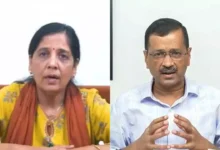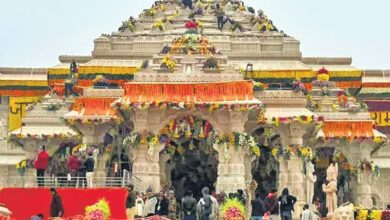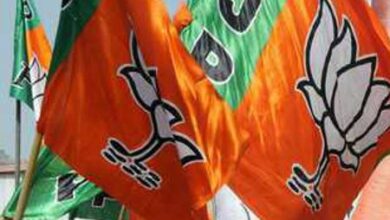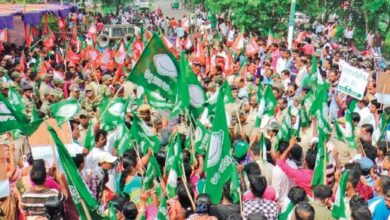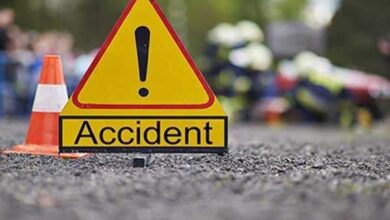Elevate the political threshold
The Association of Democratic Changes (ADR), which has been advocating for electoral changes for 25 years, made public information on the criminal complaints filed against candidates running in the first round of the Lok Sabha elections on April 19. This information is remarkable.

The Election Commission of India has demanded that the candidates disclose the criminal matters they are now facing in self-sworn affidavits. Of the 1,625 affidavits, 1,618 have been examined by the ADR. It revealed that 252 competitors—nearly 16 percent—were charged with crimes. Furthermore, 161 candidates—or 10% of those running in the first round of the election—were charged with major crimes.
It’s also fascinating to see the distribution by party. Of the 77 candidates nominated by the BJP for this round, 28 (or 36%) are accused of crimes, and 14 (18%) of them are accused of major crimes. Out of the 56 candidates running for Congress, 19 (or 34%) are being prosecuted for crimes, while 8 (or 14%) are facing severe accusations. The dominant party in Tamil Nadu, the DMK (Dravida Munnetra Kazhagam), has 22 candidates running at the state level; 13 (or 59% of them) are accused of crimes, and 6 (or 27% of them) are accused of significant offenses.
Thirteen of the thirty-six candidates fielded by the All India Anna Dravida Munnetra Kazhagam (AIADMK) in this round are accused of crimes, while six (17%) are accused of major crimes. The Pattali Makkal Katchi is a tiny political party in Tamil Nadu that has a lot of political influence in its social group. Their story is very intriguing. Six of the ten candidates are the subject of ongoing criminal prosecutions, while the other four are accused of major crimes.
What do these numbers mean? They make allegations that members of political parties are allegedly engaged in criminal activity, including rape, murder, and severe attempted murder. And this leads to the unavoidable conclusion that parties include lawbreakers, troublemakers, and, to put it simply, criminals inside their ranks. Many of the so-called “strongmen” who force their way onto party lists in order to contest elections have risen to a position where they have instilled dread in the minds of others due to their illegal activities.
However, there is more than one side. India’s political scene is characterized by arrests, physical altercations, and demonstrations. Additionally, the Indian Penal Code’s pertinent—and sometimes irrelevant—provisions are used by the police to support their cases when they register them. Among political workers, there are people implicated in rape and murder cases, as well as those who have been set up.
In this nation, taking part in a public march, enduring a police lathi-charge, rubber bullets, tear gas, and imprisonment are all considered indicators of being a political activist. Many of them are listed in the record book as legal infractions. Therefore, further research into the specifics of the criminal accusations against each applicant would be necessary. Then there are the cases of seasoned criminals, such as politicians who assassinate or assault their opponents.
Alternatively, they commit crimes against women both when they are and are not in positions of authority. The next step is to first reduce the list of crimes to include just rape, sexual harassment, and murder. The fact that the cops are beholden to the governing party makes the task difficult. Additionally, they will probably will file additional complaints against opposition party activists. Examining the police records is necessary.
There is no way that these problems will be resolved quickly. People must demand that candidates who are honorable and morally upright be nominated by society. And whether or not their names appear in the police files, voters need to remove anybody with a criminal past from office. It is a well-known reality in India that a large number of allegedly prominent politicians utilize intimidation and coercion to prevent people of marginalized groups from casting ballots.
In order to achieve this sustained improvement in the quality of political life, democracy watchdogs play a crucial role. More organizations like the ADR must form and work together to make sure that political norms are upheld and democracy is preserved. Governments must change and elections must continue to be conducted. However, these things need ongoing observation. Because the opposition parties are prejudiced and the ruling parties will not conduct democratic audits, this is what the public needs most.
The work is left to civil society organizations to undertake. The establishment of hundreds of democracy clubs and freedom associations across the nation, where individuals can get together and talk politics, might greatly aid in the job that these organizations accomplish. Because of this, authoritarian administrations will find it more difficult to suppress those who follow politics.
The public must provide support for these organizations. Furthermore, individuals are capable of making an educated decision when they are given indisputable information. Political parties will align themselves. People ought to be the group under pressure. Parties shouldn’t think they can manipulate others into acting like sheep. The shepherds must be people.


